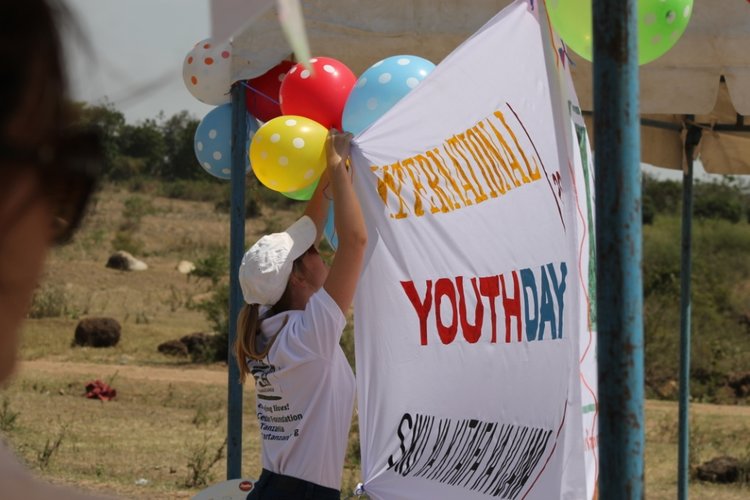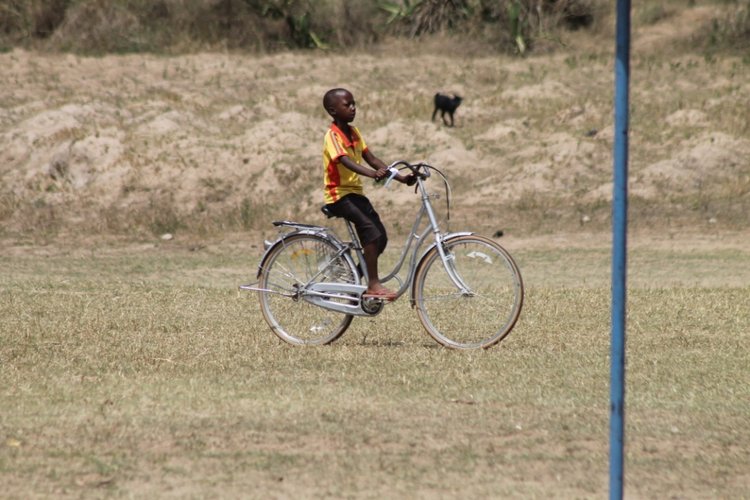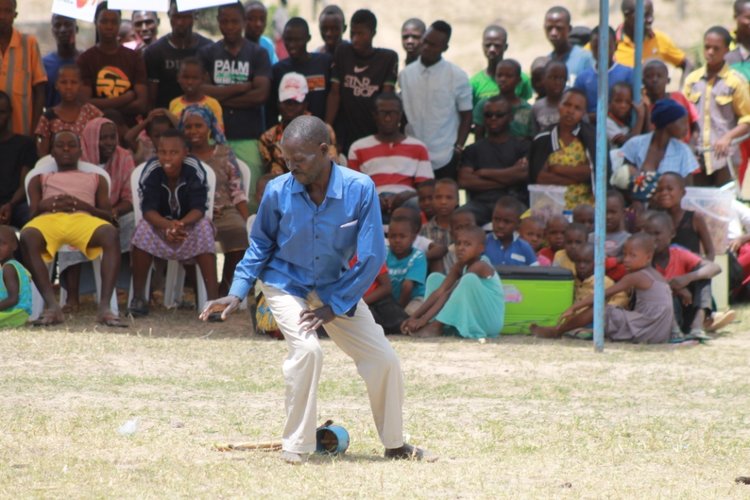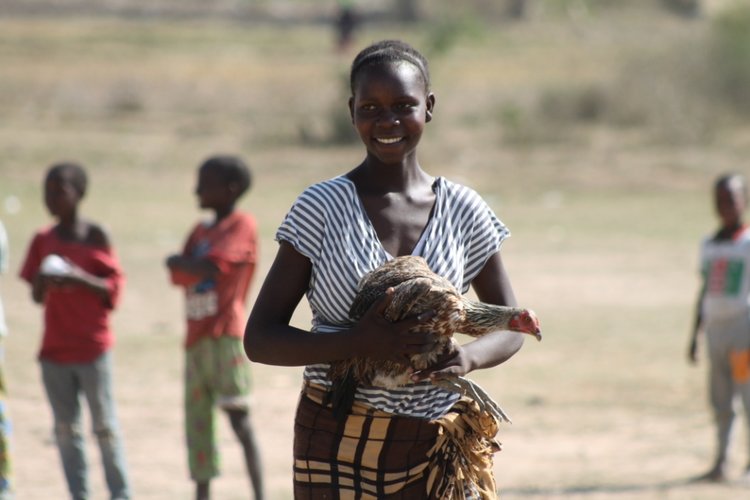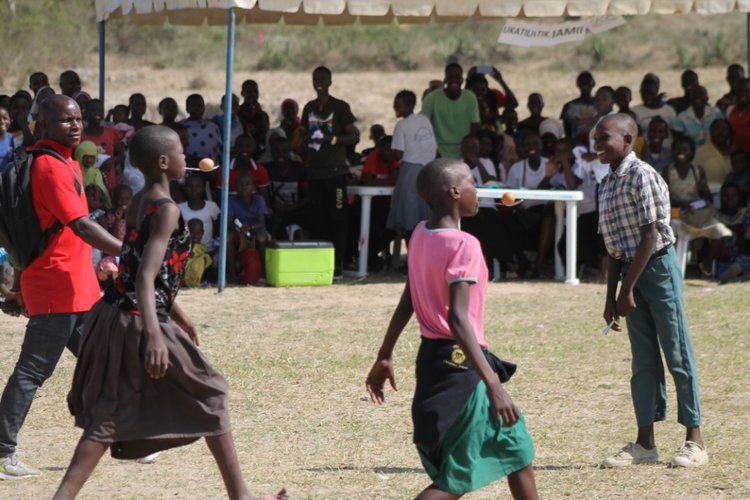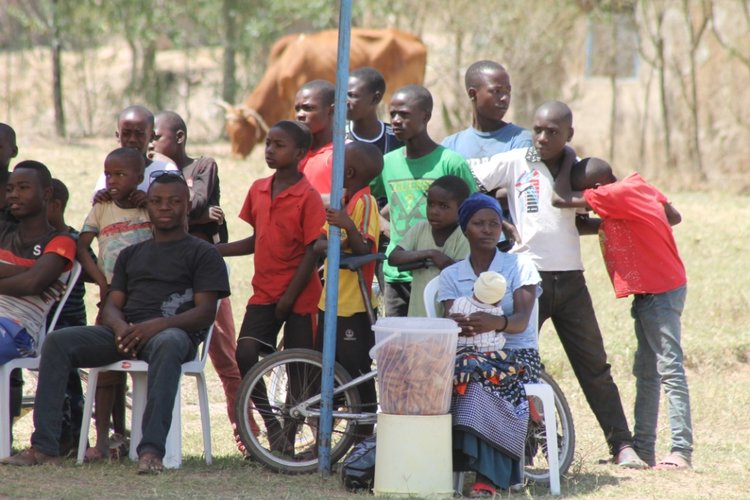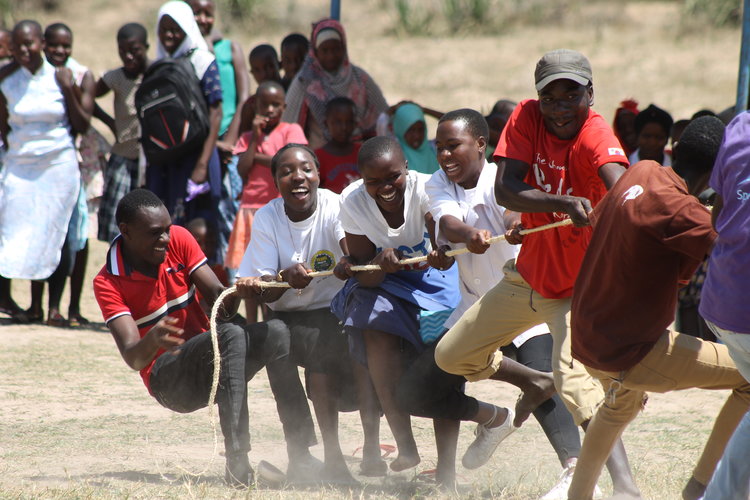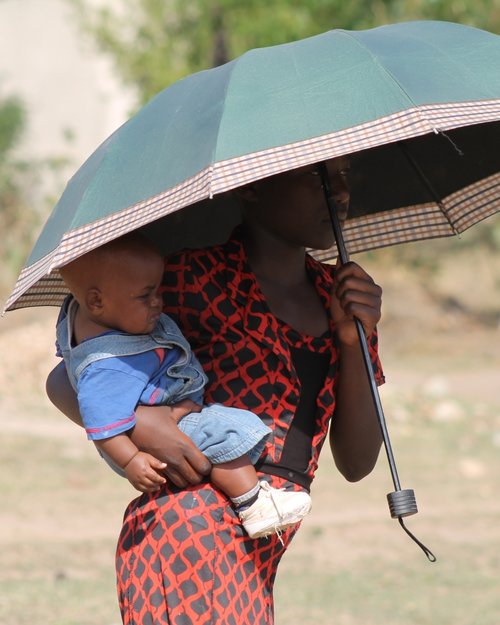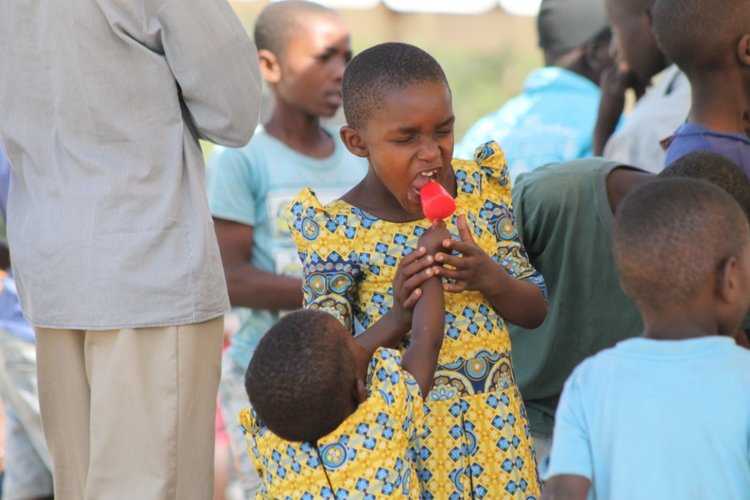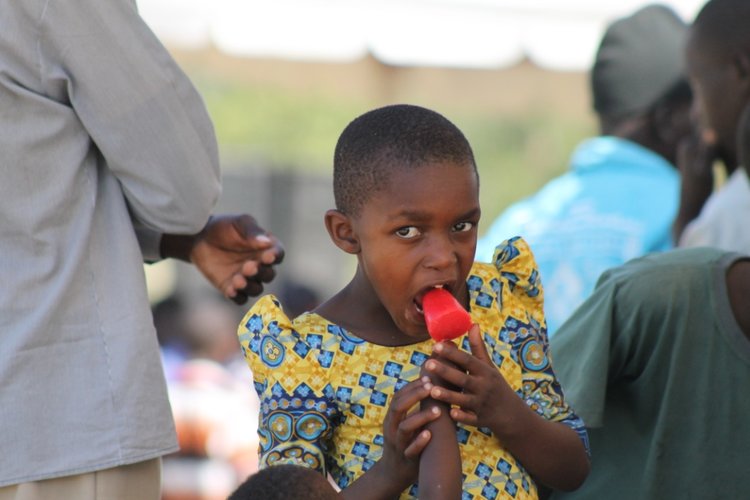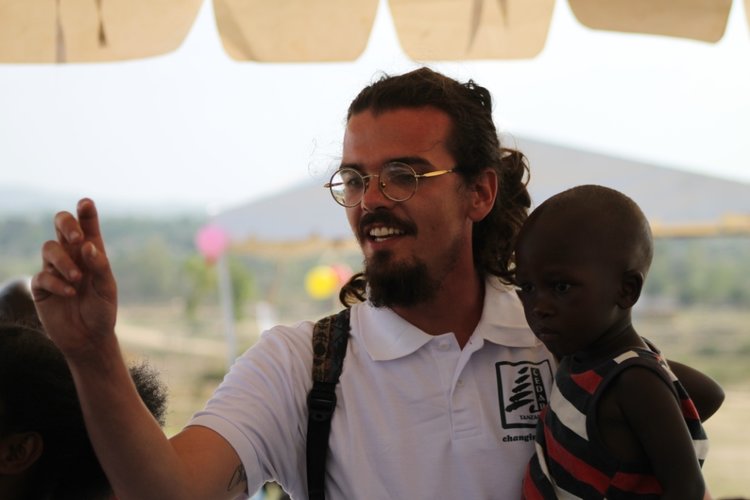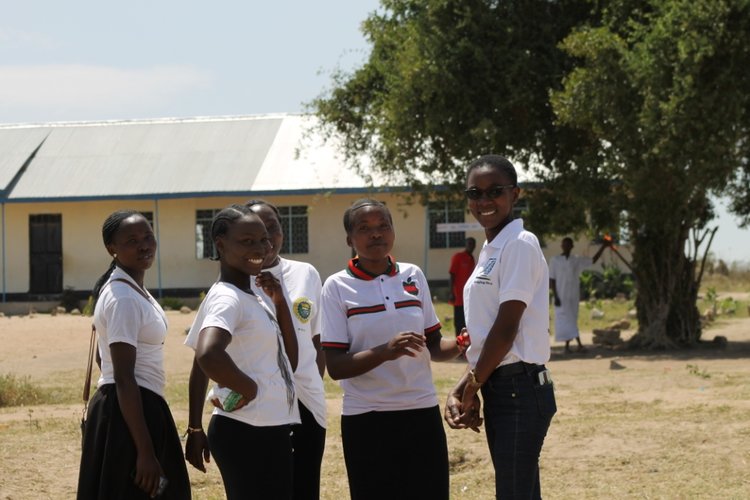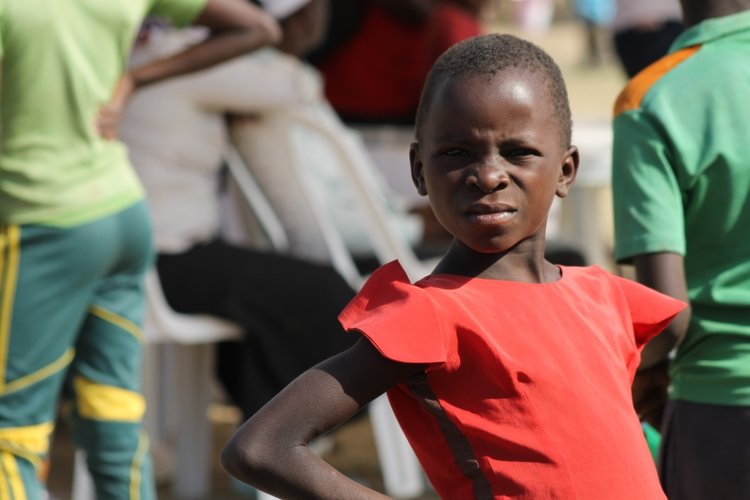Abduli, Cedar Tanzania’s Field Officer, shares his important role in the village of Kamanga. He is part of the SASA! team that works to address the sensitive issues of gender based violence in communities and he leads our TackleAfrica project, which strives to educate young people about the issues surrounding HIV/AIDS and sexual health.
HIV Awareness Campaign in Nyamatongo Ward
In Tanzania, like in most Sub-Saharan African countries, HIV/AIDS is a major public health concern. The worldwide majority of 68% of HIV-positive people live in Sub-Sahara Africa with the highest prevalence in East and Southern Africa. In Tanzania, 1.6 million people are living with the virus, whereby women are more affected than men. In order to address this severe health issue, Cedar Tanzania implements a number of projects in Nyamatongo Ward. Read more about Tackle Africa and our annual event commemorating World AIDS Day
After several community members as well as local leaders approached us to further support the education of the community around HIV/AIDS, we have developed and implemented an awareness campaign from October to December 2019. In collaboration with the Community Health Workers, our Field Officers Jacqueline and Consolatha conducted interactive community dialogues in 14 locations across the whole ward, covering all hamlets. Our aim was to demystify the virus, inform about the transmission and prevention of HIV and offer free testing on-site, provided by Dr Neema from KHC. This should contribute to the overall goal of a more informed and open society which empowers people living with HIV/AIDS.
In total, 547 community members attended the dialogues whereby 325 received Voluntary Counselling and Testing services. In order to understand the increase in knowledge after the dialogues, baseline and endline surveys were conducted.
One of the highest increases were found for the question “Can breast-feeding transmit HIV from mother to child?”. Before the dialogue only 67% of participants knew that indeed, breas-tmilk is among the fluids that transmits HIV. After the dialogue, 89% knew the correct answer. Additionally, the community learned that HIV cannot be transmitted through mosquito bites, saliva, shaking hands or kissing. Another focus of the dialogue was the prevention of transmission which can be supported by condom use and Voluntary Medical Male Circumcision. Before the dialogue, only 61% of participants knew that Voluntary Medical Male Circumcision reduces the risk of contracting HIV. After the dialogue, this number increased to 87%. Voluntary Medical Male Circumcision is offered at KHC and is proved to reduce the risk of female-to-male transmission by 60% (Source: unaids.org).
Moreover, the community was informed about the fact that, once infected with HIV, it is more likely to contract other diseases. The scores increased from 77% to 89%. The community learned that antiretroviral treatment can increase life expectancy of an HIV-positive person significantly and that the treatment is available free of charge at KHC.
All in all, the results were really encouraging as, on average, 84% correct answers were given after the dialogues. The knowledge of participants increased significantly in all areas: transmission, prevention, intimate partner relations as well as HIV-positive status. Nevertheless, we need to continue our efforts in the fight against HIV and are currently exploring additional methods to reach even more community members. If you want to support us in this endeavour Take Action
Let the games begin!
On Saturday the 17th August 2019 Cedar Tanzania celebrated International Youth Day for the first time, in the village of Kamanga.
It took the Cedar Tanzania team a lot of time to set up the party tents, chairs and tables around the edges of the school football field. But time is relative here in Kamanga, where the event that was meant to start at 12 noon got under way closer to 2pm, with nobody even batting an eye-lid at the much later start. But the party mood was helped along with the blasting of bongo flava music from giant speakers, which would inspire a dance move or two from one of the Cedar Tanzania team members, much to the amusement of his or her neighbours.
Members of the village began to trickle in at the sound of the attractive music and the intermittent loud microphoned invitations from a SASA! community activist welcoming the youth of the village to come and celebrate their day. Children on over-sized bikes rode around the field, a few young boys began to play with a balloon that had gotten loose from a corner of one of the tents, and food vendors settled themselves on the outer circle of the field ready to sell their wares of samosas, sodas and iced lolly-pops. And in time, which as you’ll remember is very relative, there gathered a crowd, which the community activist felt sizable enough to commence the day’s planned activities.
An elderly gentleman entered the centre of the field and entertained the gathering youth with his dramatic and flamboyant dance moves, announcing that the day’s fun had indeed begun. The ever increasing crowd, which maximised at around three hundred, continued to be entertained by choreographed dance groups and by individuals having dance offs. And in the midst of the games that followed - egg and spoon races and tug of war contests - the youth also got to hear about Cedar Tanzania’s many projects in the district. Paulina Urassa, Kamanga Health Centre manager, spoke about the different medical services on offer at the health centre and once again reassured the crowd that the health centre was not a private entity but a government run medical facility that charged local rates. Paulina also announced that the school classrooms, on the far side of the field, were opened and hosted a medical team from Kamanga Health Centre that was ready to test anyone desiring to know their HIV status. Throughout the course of the day 107 young adults were tested for HIV and all got to know their HIV status by the end of the day.
The SASA! teams were also able to facilitate discussions through displaying posters and drama performances about the link between the increase of HIV infection and violence at home and encouraged the listeners to not keep silent if they were experiencing violence but to go to the village representatives and report the incidents. The different SASA! village representatives stood up and introduced themselves. Cedar Tanzania is so proud to have introduced the SASA! initiative to the village of Kamanga, as it has now seen a slow increase of women reporting incidents of violence, breaking their silence. And now these women can begin to get the help and support that they desperately need from the village leaders and police domestic violence unit.
Other Cedar Tanzania projects were also presented like the Tackle Africa program that uses football drills to discuss issues of respect and sexual health to young people and the Nguvu ya Binti project, which teaches young women to sew reusable sanitary pads as part of them learning about entrepreneurial business management.
The first ever International Youth Day in Kamanga was indeed a success, as it managed to deliver very important information about sexual health and safety and community empowerment with fun and games to the youth of Kamanga village and the surrounding district. Cedar Tanzania is Changing Lives!
1 Likes
SASA! What it means to be aware
The Awareness Phase, the second of four phases in the SASA! methodology, was implemented from April 2017 until April 2019.
Before we start the third phase " Support" we would like to share with you some of the amazing results we have had during the Awareness phase.
Impact on the Community
For the majority of the community we have seen a change in knowledge and attitudes with regards to balance of power and Violence Against Women. More people break the silence and speak up about these important and pressing issues. This is due to the effort the Community Activists have been putting into their facilitations by encouraging the community to think critically about their own actions. The Community Activists are well respected members of the community and are directing victims of violence to the suited support provider. The establishment of a functioning referral system is to date the greatest challenge we face: partly, because the needed support providers are simply non-existent, partly because the local government authorities with which we always aim to cooperate are somewhat unreliable. We believe the Community Activists' role is to be a facilitator and to spark critical thinking within the community by asking questions without judging and telling what is ‘right’ and what is ‘wrong’.
Knowledge
The community knows the different types of Violence Against Women and the negative consequences that come with it. They can link Violence Against Women to HIV/AIDS and understand that Violence Against Women is a cause as well as a consequence of HIV.
Attitudes
Women and men in the community agree that Violence Against Women is never acceptable and that balanced power between men and women is healthy, safe and beneficial for both. The community agrees that everyone has power and that women are not to be blamed for the violence that is directed towards them. Moreover, it is understood that Violence Against Women is an issue affecting the whole community and not merely a private matter.
It is such a great success to see that the community is much more outspoken when it comes to Violence Against Women than it was before the implementation of SASA!. This shows that the community understands the urgent need to act and speak out about the abuse of power which leads to Violence Against Women and girls.
The increase of almost 30% from the baseline to Awareness Assessment for this questions shows that Violence Against Women is increasingly seen as an issue that affects the whole community and is not just a private matter. This decreases the stigma surrounding Violence Against Women and reduces the shame women often feel when reporting abuses.
The SASA! project is slowly but surely changing attitudes in Kamanga about how violence against women and girls is an unacceptable act.




